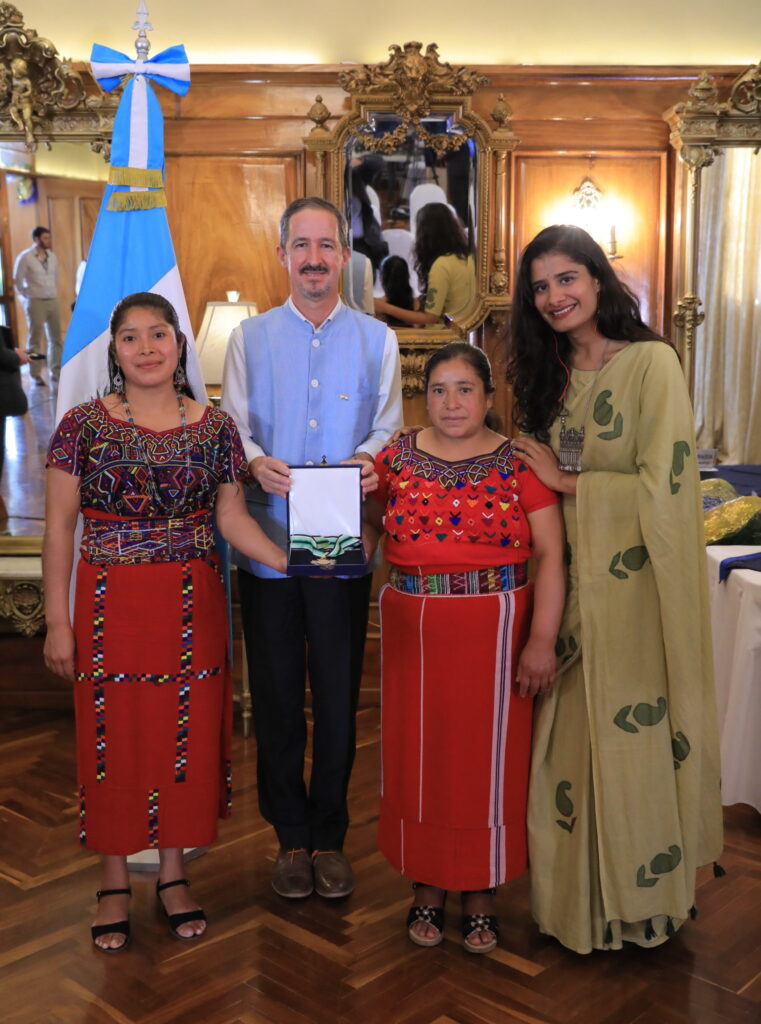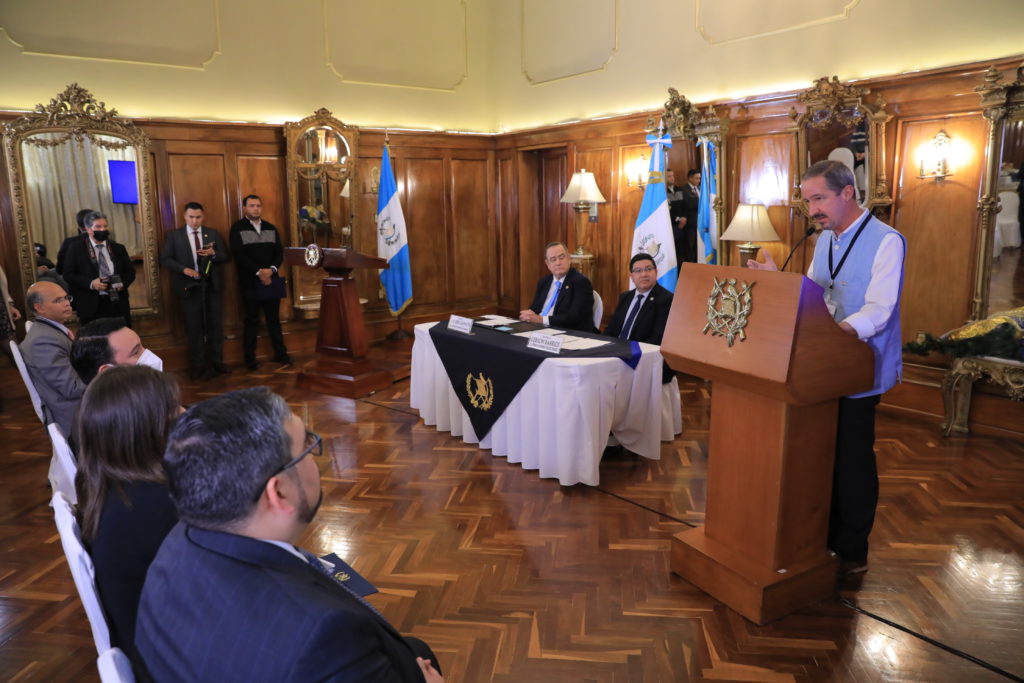Yesterday, the President of the Republic of Guatemala, Dr. Alejandro Giammattei, presented Barefoot College International with the 2022 Presidential Environmental Medal at a ceremony held in the Mirror Hall of the Presidential Palace.
This prestigious award, first presented in 1992, is the highest recognition given by the Guatemalan state to organizations or individuals for environmental work. We are honoured to have been chosen to receive it for our work in Guatemala over the past 10 years.

The award is a testament to the dedication and efforts of our staff, partners and of course the incredible women we’ve trained and who have gone on to solar electrify so many rural Guatemalan communities.
Two of our ‘Solar Mamas’, were also in attendance. Juana Emelia de León Marcos is an indigenous Guatemalan woman who trained as a Solar Engineer in India in 2020. Since her training with BCI, Juana has become a Solar Master Trainer and has trained a dozen illiterate and semi-literate women from Guatemala to bring solar energy to isolated communities in the most vulnerable and isolated areas of the country.
She was joined by Mrs Rosenda Francisca García, a semi-illiterate woman, who lost her husband early this year and finished the first training solar program in Guatemala last week. She will provide light to more than 34 houses in her community, Cumbre de La Botija, next month.
During the medal presentation, President Giammattei praised us for our work with rural women, and for the generation of energy to transform lives. He also expressed a desire to expand this model to more locations in Guatemala, which we look forward to exploring further with him.

In response, our CEO Rodrigo París thanked the President for the award and stated that it would help to strengthen the ties between India and Guatemala, and open new doors for future economic support, strategic alliances, and structural cooperation for our projects with vulnerable communities in the country.
Environmental work is vital in Guatemala, as the country is home to many biodiverse regions and natural resources. By promoting sustainable development and conservation, we can help to protect these valuable resources and improve the lives of the people who depend on them.
 The award comes just months after the inauguration of our Guatemalan Vocational Training Centre in April 2022, located in the village of Batzul, Quiché. Last week, we had the honour of concluding our first Solar Engineering training program at the centre for rural women between the ages of 19 and 69.
The award comes just months after the inauguration of our Guatemalan Vocational Training Centre in April 2022, located in the village of Batzul, Quiché. Last week, we had the honour of concluding our first Solar Engineering training program at the centre for rural women between the ages of 19 and 69.
With the support of our corporate and NGO partners, including Elvis & Kresse, Gen Digital, Mite, Palo Alto Networks, Tejdesa, and the World Food Programme, we will now work with these women to bring energy solutions to dozens of communities living in extreme poverty in Guatemala.

